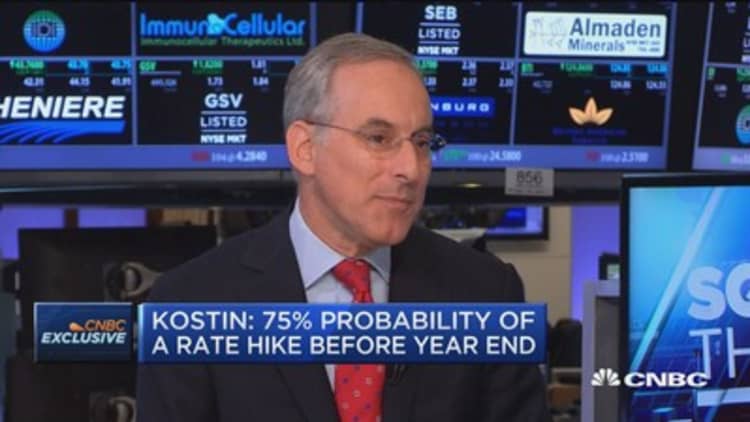
Goldman Sachs Chief U.S. Equity Strategist David Kostin said Tuesday that he's sticking to his call that the will end the year at 2,100, even though the index is trading above that level.
In his view, the market still faces a number of headwinds, including declining corporate profit margins, weak economic growth, the prospect of higher interest rates and uncertainty swirling around the U.S. presidential election.
In this environment, he said Goldman is staking out a number of strategies.
"One of the big focuses over the last several months has been minimum volatility strategies, and I believe that is the wrong approach to selecting stocks. You should be forward-looking, looking at risk-adjusted returns," he told CNBC's "Squawk on the Street."
That means weighing the price target for a stock against implied volatility to determine how much risk is built into achieving the anticipated return, Kostin said. Given how high equity valuations have crept, risk-adjusted return is critical, he added.
Some of the stocks with the highest risk-adjusted return are Starbucks, Visa, Nike and Salesforce.com, he said.
Goldman is also forecasting that 10-year U.S. Treasury rates will climb from about 1.5 percent toward 2 percent this year on an anticipated Federal Reserve rate hike. In a rising rate environment, Kostin said there is a case for choosing stocks that can increase their dividends.
While names that offer high dividends have performed well this year, those with growth potential have lagged, he said. Among these he counts Amgen and Corning, both "companies where there is above-average dividend yields and the dividend is expected to be quite robust over the next couple years."
The market is also grappling with some level of secular stagnation as low interest rates have failed to induce businesses to invest capital, Kostin said.
For that reason, Goldman is looking for companies that have posted revenue growth of 10 percent or more, but are trading below 7.5 times enterprise value to sales. Companies that fit this bill include Google-parent Alphabet, Amazon.com, PayPal and Fortinet.
"That is a rarity. I call those secular growth stocks in a secular stagnation-type economy," he said.


